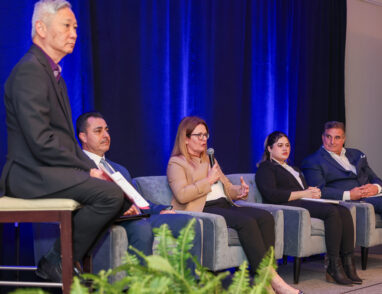Beyond Moonshot to Curing Cancer
December 19, 2016 · NCQA Communications
Otis Brawley knows about cancer. An oncologist who grew up in inner-city Detroit, Brawley worked in the largest public hospital in America, where every day he saw the disparities of cancer treatment and prevention.
Now, as chief medical officer at the American Cancer Society, Brawley views health disparities through the national lens—and he sees that unbalanced access to cancer care and prevention is a huge problem.
This month, President Obama signed into law the 21st Century Cures Act, a bipartisan legislation to fund important medical breakthroughs. The Cures Act makes significant investments in innovative technologies and research that—who knows?—might one day find a cure for Alzheimer’s and end cancer.
Almost foreshadowing this historic law when he spoke at NCQA’s Quality Talks in October, Brawley spoke about attacking cancer head-on. “It will take billions,” he said, adding that it will also take a committed effort to educate millions of Americans about cancer prevention and to expand opportunities for early screening.
The Good News
But there is good news on which to build: Cancer rates are down. They peaked in 1991, and have been dropping since. In 2013 there was a 24% decline in cancer deaths. Death from colon cancer is down 40%, thanks to screening and improved treatment, and breast cancer deaths have fallen 35%. An educated populace helps: the more educated you are, the less likely you’ll die from cancer.
Beyond Moonshot to Curing Cancer
But prevention, screening and treatment are not equal. Smoking, obesity, poor nutrition and lack of exercise all contribute to the onset of various types of cancers. Brawley knows that access to lifesaving care often depends on the state you live in, and some states fare better than others.
Otis Brawley’s Quality Talk takes us on a journey through cancer’s past, present and future—and sums up with the simple goal of universal access to the cancer prevention, care and treatment everyone deserves.









